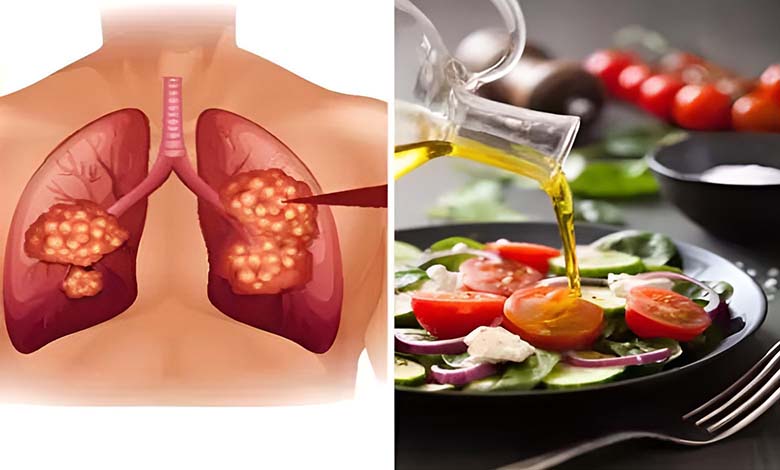Discovery of an Unexpected Link between Diet and Lung Cancer

For many years, lung cancer has been overwhelmingly linked to smoking, which has long been recognized as the primary risk factor for this serious illness. However, recent scientific findings are beginning to uncover other contributing factors that may increase the likelihood of developing lung cancer, even in people who have never smoked. Among these factors, diet is now gaining attention as a potentially significant element in the equation. New studies suggest that poor eating habits may substantially raise the risk of lung cancer in ways that were previously unconsidered.
-
A New Innovation Detects Lung Cancer through Breathing
-
Experts: Lung Cancer Does Not Only Affect Smokers
Researchers have found a growing connection between high-glycemic diets and the risk of developing certain types of cancer, including lung cancer. High-glycemic foods are those that cause a rapid spike in blood sugar levels, which in turn leads to an overproduction of insulin and growth factors such as IGF-1. These biological reactions can stimulate abnormal cell growth, a fundamental process in cancer formation. Foods commonly implicated include white bread, refined pasta, sugary breakfast cereals, sodas, pastries, and many other highly processed products that are typical in modern diets.
On the flip side, numerous studies have identified certain nutrients found in fruits, vegetables, whole grains, legumes, and natural sources of omega-3s as being protective against the development of cancer. Dietary fiber, natural antioxidants, and anti-inflammatory compounds in these wholesome foods help support immune function and reduce chronic inflammation—both critical in protecting against various diseases, including cancer.
-
A promising technology for early detection of lung cancer
-
Lung Cancer awareness month… The leading killer among all cancers
A study conducted in the United States found that individuals with diets high in refined carbohydrates and processed foods had an almost 50% greater risk of developing lung cancer, even when controlling for smoking status, age, and physical activity. Another study from Harvard showed that people who consistently ate fiber-rich foods had significantly lower rates of lung cancer, particularly among those who had never smoked.
It’s also important to understand that the effects of diet on lung health are not necessarily immediate but rather accumulate over time. This means that an unhealthy diet maintained for many years can have a deep, silent impact on lung health, even if traditional risk factors like smoking or environmental exposure are absent.
-
Shocking Scientific Discovery: The Surprising Strategy Cancer Cells Use to Survive Nutrient Shortages
-
“Manipulating Light”: A Butterfly Wing-Inspired Technology for Cancer Diagnosis
Scientists explain that diet influences the body in several ways. Not only does it affect hormone levels, but it also alters the gut microbiome, which is now known to play a vital role in regulating immune responses and inflammation. An imbalanced gut flora, often the result of a diet low in fiber and high in saturated fats or simple sugars, may promote a chronic inflammatory state that creates favorable conditions for disease development, including cancer.
In conclusion, although smoking remains by far the most significant risk factor for lung cancer, it is increasingly clear that diet also plays an important role. A healthy diet rich in whole, natural, and nutrient-dense foods could serve as a valuable complementary strategy in reducing lung cancer risk. This insight is especially relevant for non-smokers, who may assume they are safe from such diseases, while their daily food choices could, over time, have a profound effect on their lung health. Maintaining a healthy diet is therefore not only good for cardiovascular and digestive health but may also be key in preventing some of the most serious forms of cancer.












